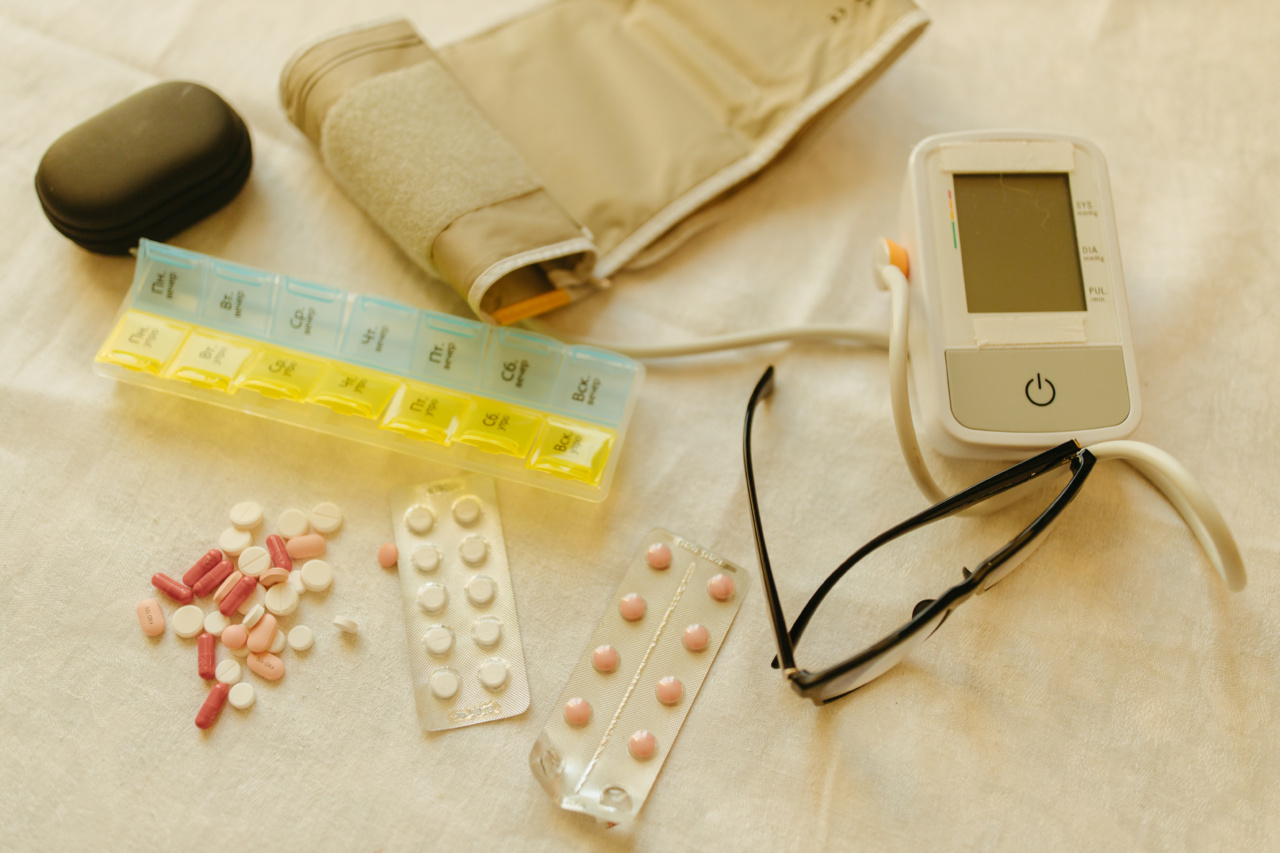High blood pressure, also known as hypertension, is a common health condition that affects millions of people around the world. It is a serious issue that can lead to various complications if left untreated.
While lifestyle factors such as diet and exercise play a significant role in managing blood pressure, certain medications can also affect your blood pressure levels. Understanding which medicines can raise your blood pressure is crucial in order to make informed decisions about your healthcare. In this article, we will explore some common types of medications that can potentially increase blood pressure.
1. Nonsteroidal Anti-inflammatory Drugs (NSAIDs)
NSAIDs are commonly used to relieve pain and reduce inflammation. Medications such as ibuprofen, naproxen, and aspirin are included in this category.
While these drugs are effective for managing pain, they can also increase blood pressure in some individuals. NSAIDs work by reducing the production of prostaglandins, which are hormone-like substances that play a role in regulating blood pressure. By inhibiting these compounds, NSAIDs can cause the blood vessels to constrict, elevating blood pressure levels.
2. Decongestants
Decongestants such as pseudoephedrine and phenylephrine are commonly found in over-the-counter medications used to relieve nasal congestion caused by colds, allergies, and sinusitis.
These drugs work by narrowing the blood vessels in the nasal passages to reduce swelling. However, the same vasoconstrictive properties can also cause blood pressure to rise, particularly in individuals who already have hypertension.
It is important to use decongestants cautiously and consult with a healthcare professional if you have high blood pressure.
3. Oral Contraceptives
Birth control pills, also known as oral contraceptives, contain hormones that prevent pregnancy. While they are generally safe and effective, certain oral contraceptives can contribute to an increase in blood pressure.
Estrogen, a key component in many oral contraceptives, can lead to the constriction of blood vessels and fluid retention, both of which can elevate blood pressure levels. It is therefore essential to discuss your blood pressure history with your healthcare provider before starting any oral contraceptive medication.
4. Antidepressants
Depression is a mental health condition that affects many individuals worldwide.
Antidepressant medications, including selective serotonin reuptake inhibitors (SSRIs) and tricyclic antidepressants (TCAs), are commonly prescribed to manage depressive symptoms. However, certain antidepressants have been associated with increased blood pressure levels. TCAs, in particular, have been known to interfere with the dilation of blood vessels, thereby raising blood pressure.
It is crucial to work with your healthcare professional to monitor and manage your blood pressure while taking antidepressant medications.
5. Corticosteroids
Corticosteroids are potent anti-inflammatory medications that are often prescribed to treat various conditions such as asthma, allergies, and autoimmune disorders.
While they are effective in reducing inflammation, long-term use of corticosteroids can lead to an increase in blood pressure. Corticosteroids cause the kidneys to retain sodium, which can result in fluid retention and elevated blood pressure levels.
If you are taking corticosteroids, regular blood pressure monitoring and discussions with your healthcare provider are essential.
6. Stimulants
Stimulant medications, commonly prescribed for attention deficit hyperactivity disorder (ADHD), can also elevate blood pressure levels.
These medications, such as methylphenidate and amphetamines, stimulate the central nervous system, which can lead to an increase in heart rate and blood pressure. Individuals with pre-existing hypertension should exercise caution when using stimulant medications and monitor their blood pressure regularly.
7. Nonselective Nonsteroidal Anti-inflammatory Drugs (NSAIDs)
In addition to the selective NSAIDs mentioned earlier, nonselective NSAIDs such as indomethacin and ketorolac can also raise blood pressure levels.
These medications not only inhibit prostaglandin production but also constrict blood vessels, potentially resulting in increased blood pressure. If you have hypertension or are at risk for developing high blood pressure, consult with your healthcare provider before using these medications.
8. Immunosuppressants
Immunosuppressants are drugs that help suppress the immune system in individuals receiving organ transplants or managing autoimmune diseases.
Medications such as cyclosporine and tacrolimus, commonly used in immunosuppressive therapy, have been associated with increased blood pressure levels. The exact mechanism behind this association is not fully understood, but it is important for individuals taking immunosuppressants to monitor their blood pressure regularly and discuss any concerns with their healthcare provider.
9. Herbal Supplements
While natural or herbal supplements are often considered safe, some can have an impact on blood pressure levels. Certain herbal supplements, such as ginseng and licorice root, have been found to elevate blood pressure in some individuals.
It is crucial to inform your healthcare provider about any herbal supplements you are taking to ensure they do not negatively impact your blood pressure management.
10. Over-the-counter Medications
Various over-the-counter medications, including cough and cold remedies, appetite suppressants, and certain herbal products, can contain ingredients that may increase blood pressure levels.
Many of these products contain decongestants, stimulants, or other substances that can elevate blood pressure. It is important to check the labels of over-the-counter medications carefully and consult with a healthcare professional if you have hypertension or are at risk for high blood pressure.
Conclusion
Awareness and understanding of the medications that can raise blood pressure are important for individuals with hypertension or those at risk for developing high blood pressure.
If you are currently taking any of the mentioned medications, it is crucial to communicate openly with your healthcare provider, monitor your blood pressure regularly, and make necessary lifestyle adjustments to manage your overall blood pressure effectively.





























